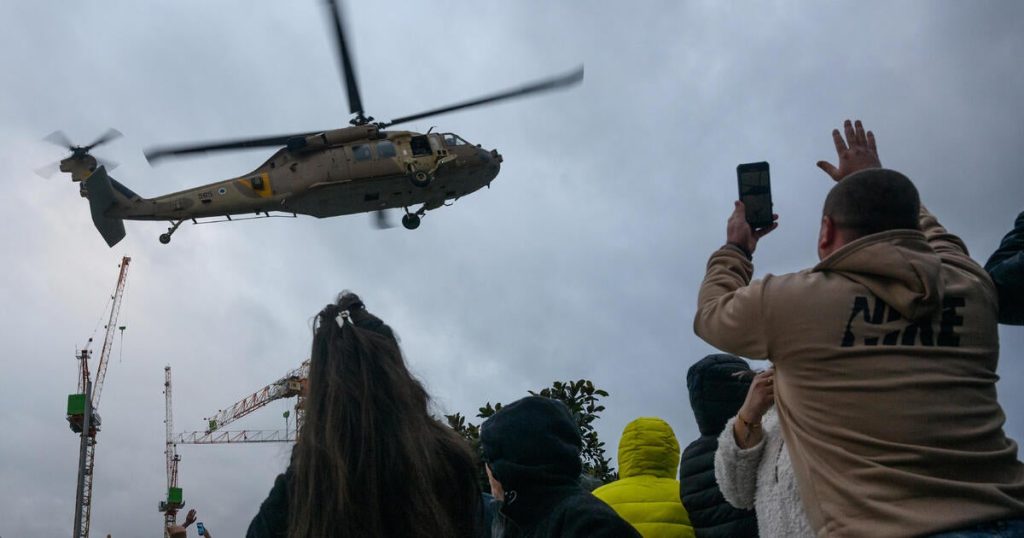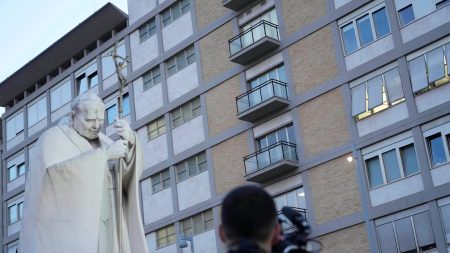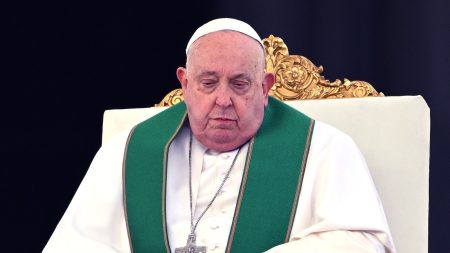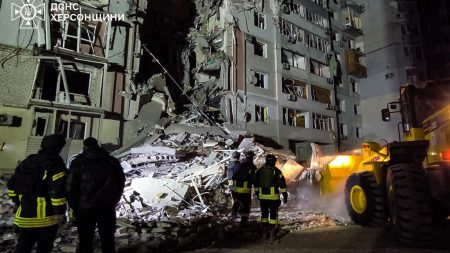The Delay in Palestinian Prisoner Release: A Tense Ceasefire Scenario
The release of hundreds of Palestinian prisoners, initially slated to be the largest one-day release under the Gaza ceasefire’s first phase, has been delayed indefinitely. According to a statement from Israeli Prime Minister Benjamin Netanyahu’s office, the delay is intended to ensure that the next hostages are released "without the humiliating ceremonies" that have accompanied previous handovers. This decision has cast further uncertainty over the already fragile ceasefire agreement. Military vehicles that had begun moving toward Ofer prison, where the prisoners were to be released, turned back, leaving the fate of the 620 Palestinian prisoners in limbo. Families of the prisoners, many of whom had gathered outside in the cold, were seen dispersing in disappointment, with one woman visibly distraught, walking away in tears.
A Contentious Hostage Release: Criticism Over Ceremonies
The delay in the prisoner release came on the heels of the freeing of six Israeli hostages on Saturday, the last expected to be released under the first phase of the ceasefire. While the release of these hostages brought relief to their families, the manner in which they were handed over has drawn sharp criticism. Five of the six hostages were paraded in staged ceremonies, flanked by masked, armed militants, in what the United Nations and Red Cross have previously condemned as cruel and inhumane. One hostage, Omer Shem Tov, was forced to kiss two Hamas fighters on the head and blow kisses to the crowd, all while wearing a fake army uniform. These actions have been widely criticized as a blatant use of hostages for propaganda purposes, further straining the already tense relations between Israel and Hamas.
Stories of Survival and Reunion
The release of the six hostages has brought mixed emotions, with moments of joy tempered by the harrowing stories of their captivity. Among those freed were three Israeli men abducted from the Nova music festival and another taken while visiting family during the Hamas-led attack on October 7, 2023. The two others had been held for a decade after entering Gaza on their own. For Eliya Cohen, the reunion with her family was a moment of pure emotion, with her loved ones chanting her name and cheering as she returned home. Shem Tov, meanwhile, was overcome with emotion as he embraced his parents, telling them, "You’re heroes. You have no idea how much I dreamt of you." His father later revealed that Shem Tov had been held in solitary confinement after the first 50 days of his captivity and had lost a significant amount of weight.
The release of Tal Shoham and Avera Mengistu earlier in the day brought their own stories of resilience and struggle. Mengistu, an Ethiopian-Israeli who entered Gaza in 2014, has reportedly struggled with mental health issues during his decade-long captivity. Shoham, an Israeli-Austrian, was taken from Kibbutz Be’eri, and his wife and two children were freed in a previous exchange in 2023. Later in the day, Hisham Al-Sayed, a Bedouin Israeli who entered Gaza in 2015, was also released. His family has shared that he was previously diagnosed with schizophrenia, adding another layer of complexity to his ordeal.
A Heart-Wrenching Dispute Over a Mother’s Remains
The already fraught situation took a devastating turn earlier in the week when Hamas handed over the wrong body for Shiri Bibas, an Israeli mother abducted with her two young boys. The remains were initially identified as those of a Palestinian woman, leading to widespread outrage and grief. Netanyahu vowed revenge for what he called "a cruel and malicious violation," while Hamas suggested the incident was a mistake. On Friday, Israeli forensic authorities confirmed that a body handed over was indeed Bibas, though they found no evidence to support Hamas’s claim that she and her children were killed in an Israeli airstrike. Instead, the Israeli military alleged, based on forensic evidence and intelligence, that Hamas militants had killed the children "with their bare hands," a claim Hamas has vehemently denied as a lie aimed at justifying Israeli military actions against civilians in Gaza.
The Fragile State of the Ceasefire
The delay in the prisoner release and the ongoing disputes over the treatment of hostages and the handling of Bibas’s remains have placed the ceasefire agreement on increasingly shaky ground. Hamas has accused Israel of violating the terms of the deal, with spokesperson Abdel Latif Al-Qanou charging that Netanyahu is "deliberately stalling" the process. The Israeli government, meanwhile, has remained silent on the matter, leaving the future of the truce uncertain as talks on the second phase of the ceasefire have yet to begin. The release of the six hostages was meant to mark a significant step forward in the agreement, but the surrounding controversies have only deepened the mistrust and animosity between the two sides. As the situation continues to unfold, the region remains on edge, with the fragile ceasefire hanging in the balance.















